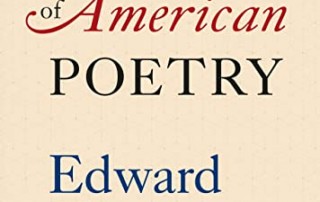
“Life has to have the plenitude of art,” Edward Hirsch affirms in his fifth volume of poems, On Love, which further establishes him as a major artist. From its opening epigraph by Thomas Hardy and an initiating prayer for transformation, On Love takes up the subjects of separateness and fusion, autonomy and blur. The initial progression of fifteen shapely and passionate lyrics (including a sonnet about the poet at seven, a villanelle about the loneliness of a pioneer woman on the prairie, and an elegy for Amy Clampitt) opens out into a sequence of meditations about love. These arresting love poems are spoken by a gallery of historical figures from Denis Diderot, Heinrich Heine, Charles Baudelaire, and Ralph Waldo Emerson to Gertrude Stein, Federico Garcia Lorca, Zora Neale Hurston, and Colette. Each anatomizes a different aspect of eros in poems uttered by a chorus of historical authorities that is also a lone lover’s yearning voice. Personal, literary, On Love offers the most formally adept and moving poetry by the author Harold Bloom hails as utterly fresh, canonical, and necessary.
Pages: 96 pages
Publisher: Knopf (1998)
Language: English
ISBN-13: 978-0375402531
Ocean of Grass
The ground was holy, but the wind was harsh
and unbroken prairie stretched for hundreds of miles
so that all she could see was an ocean of grass.
Some days she got so lonely she went outside
and nestled among the sheep, for company.
The ground was holy, but the wind was harsh
and prairie fires swept across the plains,
lighting up the country like a vast tinderbox
until all she could see was an ocean of flames.
She went three years without viewing a tree.
When her husband finally took her on a timber run
she called the ground holy and the wind harsh
and got down on her knees and wept inconsolably,
and lived in a sod hut for thirty more years
until the world dissolved in an ocean of grass.
Think of her sometimes when you pace the earth,
our mother, where she was laid to rest.
The ground was holy, but the wind was harsh
for those who drowned in an ocean of grass.

MULTIMEDIA
Edward Hirsch reading two poems at the 2008 Dodge Poetry Festival
“A Partial History of My Stupidity” and ” The Widening Sky”
Edward Hirsch on falling in love with poetry
On this edition of HoCoPoLitSo’s “The Writing Life,” poet Michael Collier and mid-westerner Ed Hirsch huddle in shirt sleeves to talk poetry. Not only American, but international poets he read in translation, says Hirsch, enable him to discover his vocation. From his fifth book of poems On Love, they consider “The Poet at Seven,” “Colette,” and the moving “Ocean of Grass.” Recorded in 2000, the show features the pair discussing Hirsch’s seminal nonfiction book, How to Read a Poem and Fall in Love with Poetry.
EDITORIAL REVIEWS
“The affirmation of On Love is its language, and the sense it gives that the language of love is inexhaustible. However conversant with the abyss, however true to the devastating logic of desire, the poems ultimately feel triumphant. They are held aloft by nothing but their own joyous artistry.”
— James Longenbach, Yale Review
“Love is every poet’s trump card, but Hirsch’s verse also has much ado about memory, art, America, music, and other such muses–and it’s these articulate if subordinate themes that haunt and heighten On Love in ways Eros flying solo can’t.”
— Scott Pitcock, Boston Review
Hirsch is passionate, erudite, and extraordinarily close to his chosen ancestors, such as Orpheus, a presence, too, in Earthly Measures (1994), and such orphic figures as Jimi Hendrix, Charles Baudelaire, and D. H. Lawrence. So attuned is Hirsch to his heroes, some two dozen writers in all, he imagines them participating in a dazzling beyond-the-grave “conversation” about love and all but channels their voices as he traces their turns of mind and offers subtle interpretations of their work. His empathy extends to women as well as men, and some of the sharpest of these complex poems illuminate the psyches of Colette, Gertrude Stein, and Margaret Fuller. Hirsch is without question heir to all the great poets of the past, and when he considers his own life, he writes lyric poems nearly incandescent in their sensuality. Yet for all his ravishing intensity, Hirsch suffers the chill of the void, always aware of a “sickening emptiness” and of being “in the midst of nothing.” He does find comfort, however, in declaring that “love alone can redeem our universe.”
— Donna Seaman
BOOKS
[wptabs id=”3997″]



